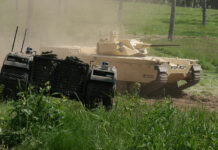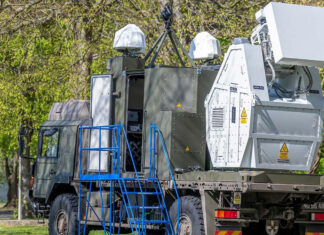Developed by Virtually Better, with funding from the Naval Research Office, “Virtual Iraq” VR environment suitable for therapy of anxiety disorders resulting from the high-stress environment. The treatment involves exposing the patient to a virtual environment containing the feared situation rather than taking the patient into the actual environment or having the patient imagine the stimulus. The virtual environment is controlled by the therapist through a computer keyboard ensuring full control of the exposure to the programmed situations.
The system designed to treat military veterans suffering from Post-Traumatic Stress Disorder (PTSD). Using components from the popular game Full Spectrum Warrior, psychologist Skip Rizzo and his colleagues introduce the patient to a virtual world simulating the sources of combat stress. The treatment objective is to help veterans come to terms with what they’ve experienced in places like Iraq and Afghanistan by immersing vets in the sights and sounds of those theaters of battle, including visual and sound effects of of gunshots. Virtual reality exposure treatment allows the therapist to manipulate situations to best suit the individual patient during a standard therapy hour (usually 45-50 minutes) and within the confines of the therapist’s office. By gradually re-introducing the patients to the experiences that triggered the trauma, the memory becomes tolerable. Early results from trials suggest virtual reality therapy is uniquely suited to a generation raised on video games.
Virtually Better is using eMagin’s Z800 3DVisor as the medium for delivering the VR exposure, delivering 3D stereovision and sound. Virtually Better applications currently include Virtual Iraq, Virtual Airplane, Virtual Audiences, Virtual Heights, Virtual Storm, and Virtual Vietnam.
















